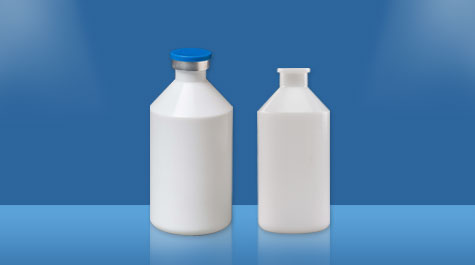Pet injection bottle is a kind of pharmaceutical packaging. In order to prevent the microbes on the packaging from contaminating the vaccine, this packaging needs to be sterilized and can only be used after reaching the microbial limit. Ethylene oxide sterilization is a common sterilization method for this type of packaging.
250ml PE plastic vaccine bottle
Ethylene oxide is also called ethylene oxide. It is a colorless liquid at low temperature with aromatic ether smell. Its boiling point is 10.8 °C, its odor threshold is 760 mg/m~1064 mg/m, and its density is 1.52; it is flammable and explosive, and its maximum The low combustion concentration is 3%. Ethylene oxide does not damage sterilized items and has strong penetrating power, so most items that are not suitable for sterilization by general methods can be sterilized and sterilized with ethylene oxide. For example, electronic instruments, optical instruments, medical instruments, books, documents, fur, cotton, chemical fibers, plastic products, wood products, ceramics and metal products, endoscopes, dialyzers and disposable medical supplies, etc. One of the low temperature sterilization methods.
It is generally believed to be due to its non-specific alkylation with microbial proteins, DNA and RNA. EO can undergo alkylation with free carboxyl, sulfhydryl and hydroxyl groups on proteins, and replace unstable hydrogen atoms to form compounds with hydroxyethyl radicals. Reactive groups required in basic metabolism hinder the normal chemical reactions and metabolism of bacterial proteins, resulting in the death of microorganisms on pet injection vials.
The above is an introduction to the commonly used sterilization methods for pet injection bottles. Ethylene oxide sterilization is a mature sterilization method. Although it has a strong sterilization effect, there are many factors affecting its sterilization, such as concentration and temperature. sterilization effect.

没有评论:
发表评论